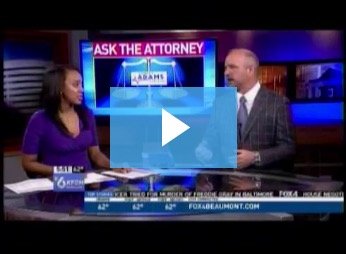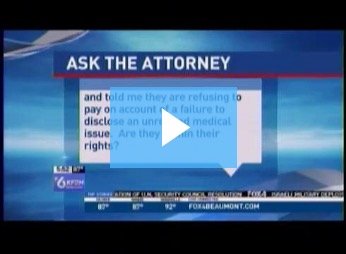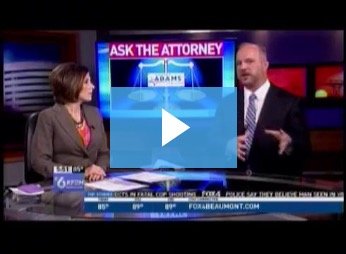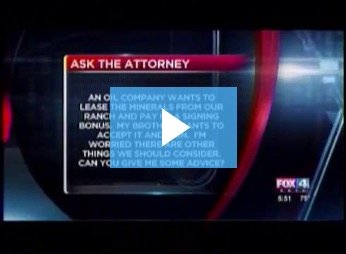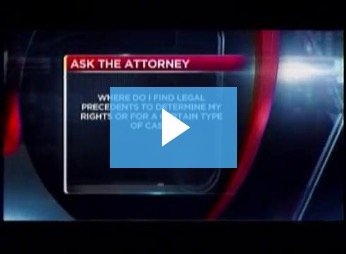Personal Injury Newsletter
Legal Liability for the Acts of Minors
In most states, the age of majority (when a person is recognized by law as an adult), is 18 years of age or older. A “minor” is a person who is under the age of 18. When a minor breaks the law or causes damage or injury to another person, an animal or property, the minor’s parents may bear the liability. Many state statutes authorize courts to hold parents financially responsible for the damages caused by their minor children. Some states may even hold parents criminally liable for failing to supervise a child whom they know to be delinquent.
Parental Liability for Minors
In general, minors are liable for their misdeeds. However, when a minor acts intentionally or negligently in a manner that causes harm to another, it is difficult to collect damages from the minor. In such a situation, the minor’s parents may also be held liable for their child’s acts and/or ordered to pay for them. A “parent” can be anyone exercising parental authority over the child, but typically refers to the “custodial” parent. Although they vary widely by state, most parental liability laws target intentional, malicious or reckless behavior and exclude pure accidents. Parental liability stems from the custodial parents’ obligation to supervise and educate their children.
Types of Acts by Minors for Which Parents May be Liable
Many states have enacted laws which hold custodial parents responsible for delinquent acts of their minor children, including:
- Vandalism
- Theft and shoplifting
- Automobile accidents
- Fights and assaults
- File sharing (e.g., music industry copyright cases)
Generally speaking, individuals who are injured or harmed by a minor may be able to file suit against both the minor and the minor’s parents.
Theories of Parental Liability
In most instances, the liability of parents for the acts of their minor children is based on their legal relationship. A parent may thus be considered to be “vicariously liable” for the acts of their children, and the law may hold them responsible for the damages their child causes. Parental liability may be found in some of the following circumstances:
- The parent has knowledge of prior misconduct
- The parent signed the child’s drivers’ license application, or the child drives the parents’ car with permission
- The child is guilty of willful misconduct
- The child was given access to firearms
- The child defaces another’s property
- The child is convicted of a crime and ordered to pay restitution
Amount of Parental Liability
State statutes holding parents liable for damages caused by their minor children vary widely on the type of delinquent act committed and the amount parents must pay. Some states cap the amount of damages for which parents are liable to pay to a few thousand dollars, while other states may hold parents liable for unlimited amounts. In California, for example, parents can be liable up to $25,000 for each tort or act of willful misconduct committed by a minor that causes injury, death or property damage. On the other hand, in New York, parents are only liable for willful and malicious acts of their minor children up to $5,000 per incident.
Insurance Coverage
Although some homeowner’s insurance policies may cover the costs of legal fees and pay for some claims of damage resulting from a minor child’s acts, such coverage is usually limited. Forinstance, in California, the insurer is not liable for more than $10,000. Policies and exclusions vary by state, but typically, most homeowners insurance will cover the acts of children under a certain age (such as 11, 12 or 13) and only for acts of negligence, but not intentional acts. In some cases, depending on the insurer, additional “policy riders” might be available for purchase after a child reaches a certain age in order to extend the coverage. Generally, however, polices often exclude illegal or willful and malicious acts and thus may, for example, exclude property damages caused by burglary committed by a minor. In such a case, the parents may be required to pay the entire amount or the statutory cap.
Escaping Liability
Where it is recognized, parental liability is generally difficult to escape. In some instances, however, parents may be able to show that they should not be liable for the damages caused by their minor children. Depending on the state and applicable statute, parents may be able to escape liability when they can sufficiently demonstrate that:
- The minor’s act was not willful and malicious
- The minor has been “emancipated” (treated as an adult under the eyes of the law)
- The parent was not the “custodial” parent of the minor at the time
- The minor was institutionalized
© 2025 NextClient.com, Inc. All rights reserved.



